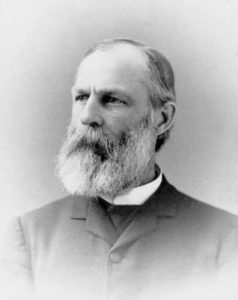 As Southern Baptists, we stand in a long tradition of faithfulness that stretches back to the 1600s, when the first Baptist church was started in Amsterdam in the Netherlands. No, that first Baptist congregation was not Southern Baptist, but we as a denomination can trace our roots in terms of our theological convictions to this point. Southern Baptists did not specifically come into existence until 1845, when the Baptist churches in the American South split off over a decision by the Triennial Convention (the association of Baptist churches in America prior to this point) not to appoint a slaveholder as a foreign missionary. Certainly, this is not a proud moment in our history, but we cannot sweep it under the rug or ignore it. Thankfully, our denomination has apologized for its affirmation of the American slave system and we have been building greater inroads with our black brothers and sisters in Christ. One of the reasons for that growing relationship is our fidelity to the authority and inerrancy of Scripture, which naturally results in our firm, public advocacy for Biblical principles.
As Southern Baptists, we stand in a long tradition of faithfulness that stretches back to the 1600s, when the first Baptist church was started in Amsterdam in the Netherlands. No, that first Baptist congregation was not Southern Baptist, but we as a denomination can trace our roots in terms of our theological convictions to this point. Southern Baptists did not specifically come into existence until 1845, when the Baptist churches in the American South split off over a decision by the Triennial Convention (the association of Baptist churches in America prior to this point) not to appoint a slaveholder as a foreign missionary. Certainly, this is not a proud moment in our history, but we cannot sweep it under the rug or ignore it. Thankfully, our denomination has apologized for its affirmation of the American slave system and we have been building greater inroads with our black brothers and sisters in Christ. One of the reasons for that growing relationship is our fidelity to the authority and inerrancy of Scripture, which naturally results in our firm, public advocacy for Biblical principles.

Yet just as our history with slavery is not spotless, neither is our relationship with the doctrine of Scriptural inerrancy. The history of our seminaries illustrates this point. The Southern Baptist Theological Seminary (the seminary where I am pursuing my M. Div. degree) was the first official seminary for the Convention, with five others eventually being founded around the nation to meet the needs of theological education for our pastors, missionaries, and laypeople. Though the original four founders and faculty members of this institution were theologically superb, the next faculty hire proved to be much less so. His name was Crawford Toy, and he had been trained in Germany under what was known as “higher criticism,” which in short was a system designed to undermine the authority of Scripture by attempting to deduce the influences that Scripture’s human authors had on their own writings. In large part it either downplayed or outright denied the inspiration of the Holy Spirit on the text of Scripture. Toy began teaching students along these lines, which included the introduction of Darwin’s theories of evolution in order to deny the authority of the creation account in Genesis. While he was dismissed from the Seminary, he was the harbinger of theological liberalism into the institutions in which we trained our pastors. Over the years, our seminaries continued to add more and more “esteemed” professors to their ranks. As a result, those trained at our seminaries, especially those who would eventually hold leadership positions in the denominations, espoused moderate to liberal theological perspectives. By 1971, messengers at the annual meeting of the SBC approved a resolution stating that “we call upon Southern Baptists to work for legislation that will allow the possibility of abortion under such conditions as rape, incest, clear evidence of severe fetal deformity, and carefully ascertained evidence of the likelihood of damage to the emotional, mental, and physical health of the mother.”
Such a resolution would have exactly 0% chance of passing at an annual meeting today. We certainly were not the first nor the last denomination to be, to borrow the words of American jurist Robert Bork, “slouching toward Gomorrah.” How, then, were we able to correct that trajectory and return to faithfulness to the authority of Scripture? Simply put, as Baptists we believe in the autonomy of the local church, meaning that there is no hierarchy of power above the local congregation that can impose beliefs or order on that congregation. Our churches remained faithful to the doctrines of inerrancy and authority, even if some of those at the denominational level had abandoned them. Those faithful churches began taking an active role in sending messengers to the annual meeting, which in turn allowed for the election of faithful and godly men as President who were committed to a high view of Scripture. Though it took several years to undo the damage done, we stand today as a denomination that stood at the brink of theological liberalism but was reclaimed to the glory of God. No other denomination can make such a claim, and we can only do so because of our Scriptural polity. This is the reason I am personally involved in denominational life and encourage you to be so as well. Our involvement does make a difference. Just something to think about…

0 Comments